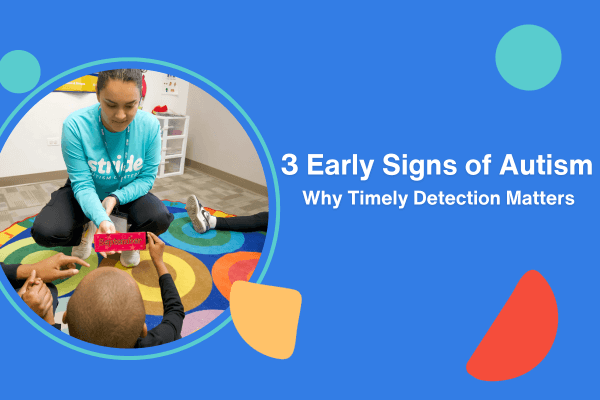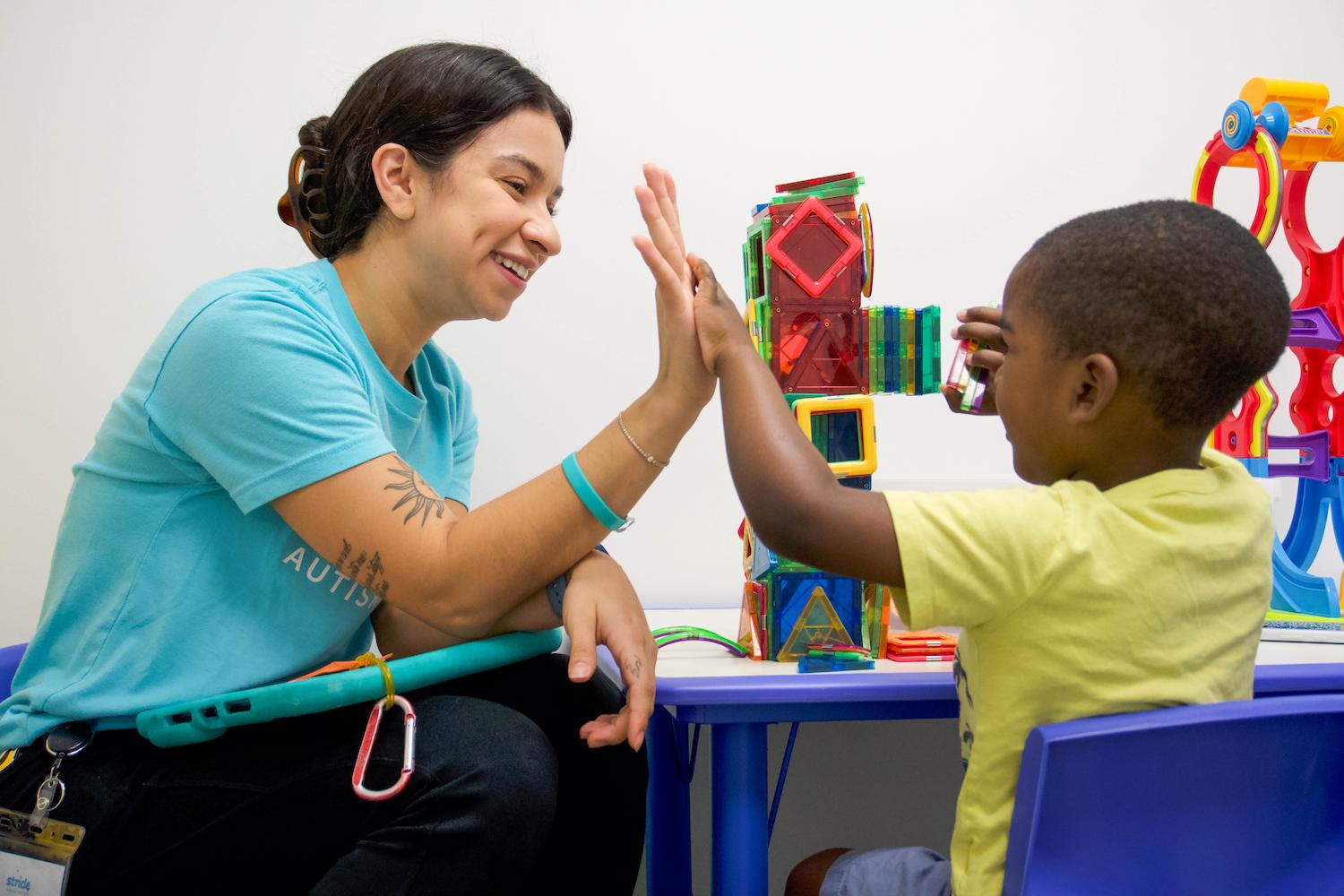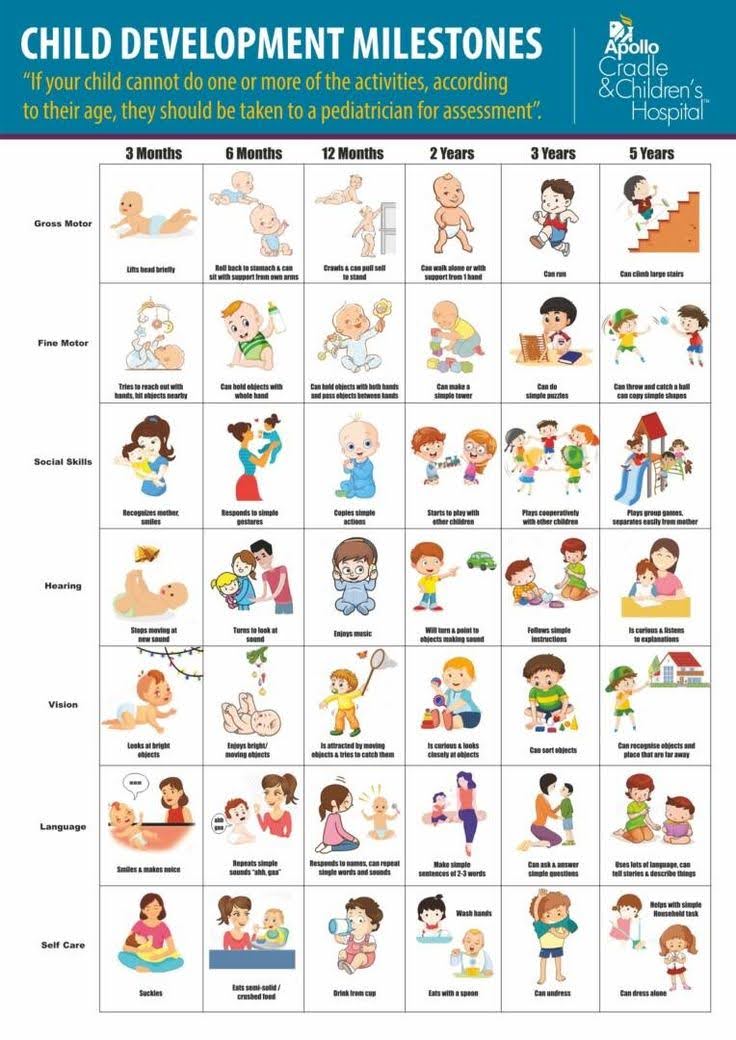
Research published in the Journal of Autism and Developmental Disorders found that early intervention programs can significantly improve communication and social skills in young children diagnosed with autism, helping them reach their full potential. This underscores the importance of recognizing early signs of autism and seeking support as soon as possible.
As a parent, noticing differences in your child’s development can be both confusing and concerning. If your toddler is showing behaviors that seem unusual or delayed compared to same-aged peers, you might wonder if it’s time to seek an autism evaluation.
Clinic psychologists and developmental pediatricians are often called upon to assess children who show signs of autism.
Understanding Autism Spectrum Disorder (ASD)
First, let’s talk about what autism is and what it is not. According to the Association for Science in Autism Treatment (ASAT), autism is a neurobehavioral disorder characterized by impairment in reciprocal social interaction and communication, and the presence of repetitive patterns of behaviors, interests, and activities.
Symptom onset typically occurs by 3 years of age and there is a wide range of how autism is expressed which is why we refer to it as a spectrum of disability. Recognizing this diversity and providing tailored resources allows individuals with autism to feel seen, valued, and to thrive.
Autism is not an intellectual disability. While some autistic individuals may have learning differences or intellectual disability; many have average or above-average intelligence. Autism is part of who they are, and many embrace their identity with pride. For many, autism is considered their superpower.
Strengths and Talents of Autistic Individuals
Autistic adults who have received services and supports often go on to excel in areas such as:
- Enhanced Focus and Concentration: The ability to deeply engage with tasks can lead to exceptional productivity and efficiency.
- Attention to Detail: Having an eye for precision and a strong memory make them invaluable in roles requiring accuracy.
- Pattern Recognition and Problem-Solving: many autistic people are naturally skilled at recognizing patterns and generating creative solutions.
- Creativity: unique perspectives and out-of-the-box thinking often result in innovative ideas and artistic expression.
3 Common Early Signs of Autism
Intervening early when your child receives an autism diagnosis makes a tremendous impact on their future potential. But, how do you know what signs to look for and when to request a formal assessment?
Below are 3 common symptoms of autism among toddlers and young children.
- Speech Delays:
- Limited babbling or use of gestures in toddlers.
- Difficulty responding to their name or looking to others seeking conversation
- Understanding what is said (receptive communication) while struggling to express themselves (expressive communication).
There is a distinction between speech and language which is important to understand when looking for early signs of autism. Delays in speech are common and tend to be due to auditory processing and/or motor planning challenges. Other children experience delays in functional language development meaning they may have an average or above-average vocabulary, but word choices may not seem appropriate to a situation or conversation.
While an autistic child may understand the meaning of a vast number of words, they may not be able to properly or sensically express them. This can create extreme and understandable frustration.
- Navigating Social Environments:
- Reduced eye contact or limited back-and-forth play.
- Less interest in other people or group activities, preferring solitary play.
- Difficulty adjusting behavior based on social expectations within their cultural context.
- Difficulty with transitions or flexibility.
It’s important to note that social interactions vary by culture so a child displaying some of the early signs of autism listed above may actually be behaving appropriately given cultural practices they are accustomed to in the home.
- Repetitive Behaviors & Sensory Sensitivities:
- Often repeating words either immediately after they are said (echolalia) or repeating the same phrase/quote in the same way.
- Repetitive actions, such as hand-flapping or rocking.
- Strong reactions to textures, sounds, or lights.
- Seeking or avoiding sensory input, like covering ears or intensely focusing on specific objects or parts of objects.
One common early sign of autism is echolalia, where a child repeats words or phrases they’ve just heard. While once thought to be meaningless repetition, research shows it can be an adaptive way to communicate and demonstrate intellectual understanding. Recognizing echolalia as a learning strategy can help caregivers better support language development in autistic children.
Why Early Detection Matters
Early autism diagnosis during toddler and young childhood years allows kids to access therapies that can support critical areas like communication, social interaction, and motor skills. Because young children’s brains are still developing, early intervention can have a greater impact on long-term outcomes than starting therapies later in life.
Recent research published by the National Institute of Health supports the significant benefits of early detection including improved cognitive, language, and social-emotional functioning in autistic children. Additionally, parents receiving an early autism diagnosis reported lower stress levels and better access to support services. As with everything in life, it is less scary and stressful once you know what you’re dealing with and can develop a plan.

Developmental Milestones to Watch
Understanding typical developmental milestones can help parents identify potential concerns early. Monitoring progress in areas such as language development, motor skills, and social interaction ensures that delays are recognized and addressed in a timely manner. Parents should stay informed about developmental milestones using trusted resources like the CDC’s milestone tracker and the ASAT Developmental Checklist.
Here is a handy infographic from Apollo Cradle & Children’s Hospital that shows milestones from 3 months to 5 years old across several developmental dimensions.

(Image source from: https://www.apolloclinic.com/for-patients/services/consultations/paediatrics/milestones-tracking)
Diagnostic Process and Professional Evaluations
If you have concerns about your child’s development, seeking a comprehensive autism assessment is a crucial step toward understanding their unique needs. At Stride Autism Centers, our diagnostic process is designed to provide clarity and support for families..
Here’s what you can expect:
- Initial Consultation: We begin with a detailed discussion to understand your child’s developmental history, behaviors, and any concerns you may have.
- Comprehensive Evaluation: As the resident licensed clinical psychologist I personally conduct a thorough assessment, which may include standardized tests, observations, and interactions with your child to evaluate various aspects of development.
- Personalized Feedback: After the evaluation, we provide a comprehensive report outlining your child’s strengths and areas where support may be beneficial. This includes recommendations for interventions or therapies tailored to your child’s specific needs.
- Ongoing Support: Whether or not an autism diagnosis is made, we guide you toward appropriate resources and support services to help your child thrive.
Early Intervention for Children Diagnosed with Autism
Early intervention programs focus on building essential skills through personalized learning plans. Evidence-based therapies like Applied Behavior Analysis (ABA), speech therapy, and occupational therapy help children improve communication, social interaction, and daily living skills. These therapies work best when caregivers are actively involved, reinforcing new skills at home.
Applied Behavior Analysis (ABA):
ABA is a structured, evidence-based therapy that uses positive reinforcement to encourage helpful behaviors while reducing those that may interfere with learning. ABA sessions can take place in a clinic or at home, depending on the child’s needs and what works best for the family.
ABA Goals often include improving communication, social skills, and adaptive behaviors like self-care and problem-solving. Stride Autism Centers offers full-day, ABA therapy in a clinic setting that allows for personalized plans and social skills development to prepare children for elementary school.
With a high ratio of Board Certified Behavioral Analysts (BCBA) and Registered Behavioral Technician (RBT) to students, Stride tailors programs to meet pre-school aged learners where they are to deliver meaningful outcomes.
Communication & Occupational Therapy:
Speech and communication therapy focus on helping children develop the ability to express themselves effectively, whether through spoken language, sign language, or alternative communication devices. Activities may include practicing vocabulary, articulation, and using visual supports.
Occupational therapy supports motor development and daily life skills like dressing, feeding, and sensory integration. Therapists may engage children in play-based activities that build coordination, fine motor skills, and self-regulation.
Therapies can be accessed through specialized clinics, in-home services, or school-based programs. Many providers offer individualized treatment plans tailored to each child’s unique needs, ensuring comprehensive developmental support.
Conclusion & Next Steps
Taking action early can make a significant difference in your child’s development. Remember that you are not alone—there are many supportive resources are available to guide you through each step of the journey. If you have questions or concerns about your child’s development, consult trusted sources like your physician and organizations like the Association for Science in Autism Treatment.
Please reach out to us at Stride Autism Centers for more information about autism assessments or enrolling your child if they are between 2-6 years old and have already received an autism diagnosis.
About the Author:
Dr. Ashley Whittington-Barnish, PhD, LCP, BCBA-D, NCSP

Dr. Whittington-Barnish is a Licensed Clinical Psychologist, Board Certified Behavior Analyst – Doctoral (BCBA-D), and Nationally Certified School Psychologist (NCSP). With over 20 years of experience supporting individuals with autism and developmental disabilities, she is passionate about helping children and their families thrive.
As Chief Clinical Systems Officer at Stride Autism Centers, she leads clinical programs and enjoys seeing clients make meaningful progress. Ashley also teaches at The Chicago School of Professional Psychology, where her research focuses on staff and caregiver training. She lives in the Chicago area with her family and two dogs.





